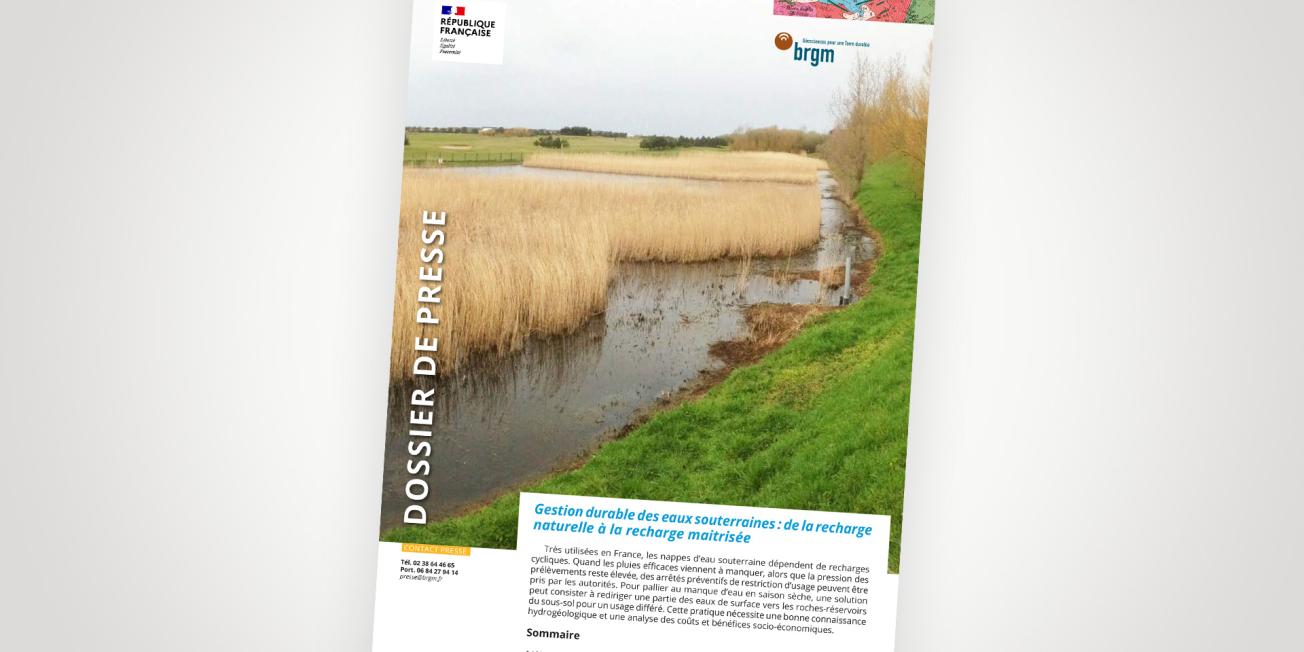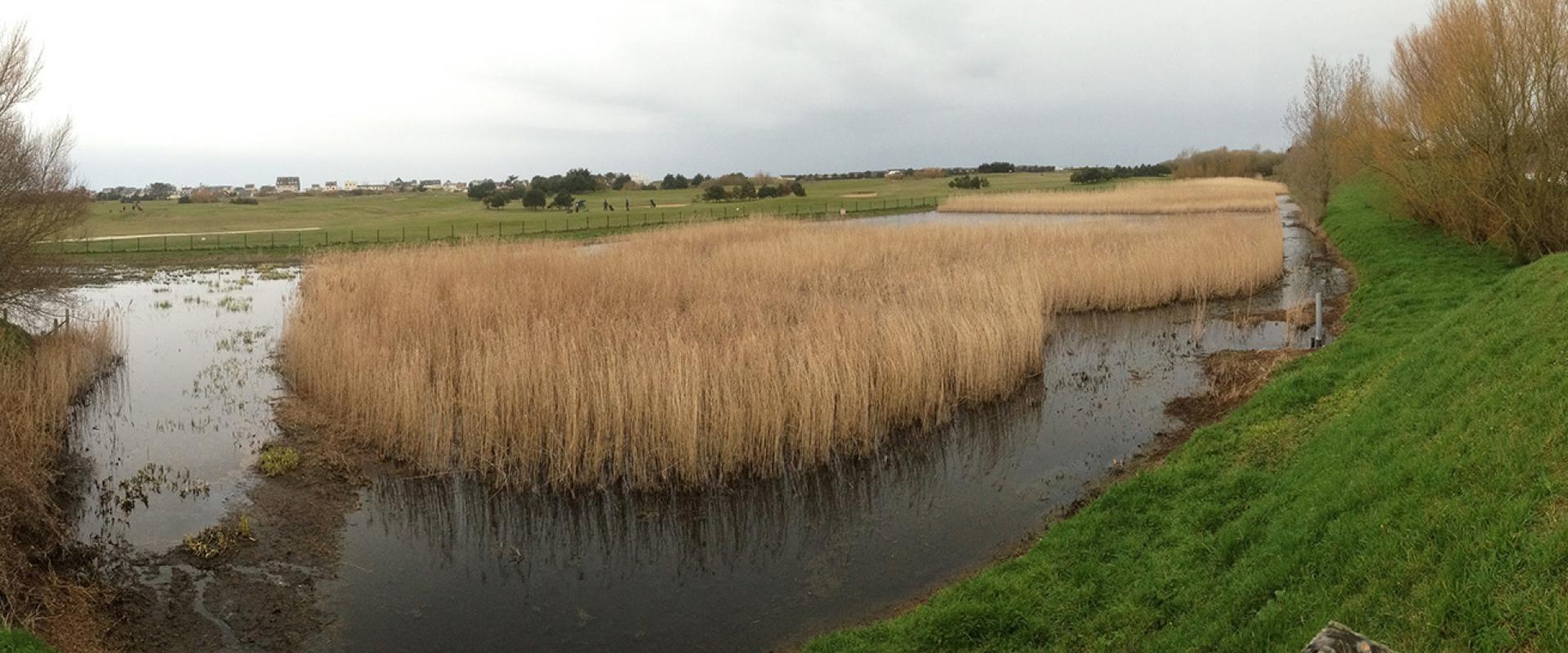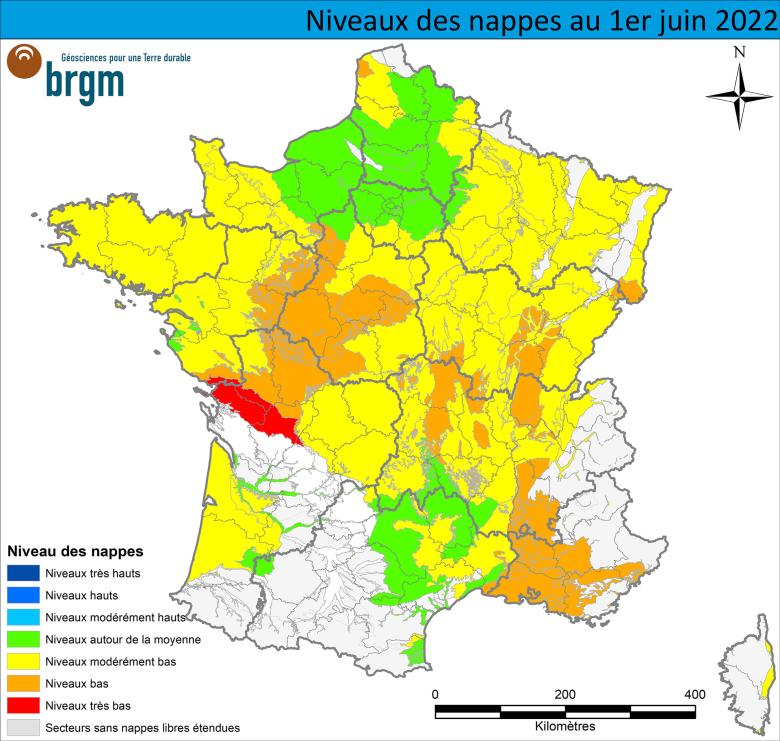
Press kit cover
© BRGM
France is highly reliant on groundwater, which depends on cyclical recharging. Where there isn’t enough effective rainfall and abstraction pressure remains high, the authorities may issue preventive water use restriction orders. To compensate for the lack of water in the dry season, one option may be to redirect part of the surface water to the underground reservoir rock for later use. This practice requires good hydrogeological knowledge and an analysis of socio-economic costs and benefits.
Groundwater levels are deficient in several regions
As France moves into summer, the situation in exploited aquifers is highly variable across regions. In the mainly agricultural north and centre, the underground rock still bears relatively significant water resources. Groundwater levels in the west, east and south-east, however, are much lower and a cause for greater concern.
- Forecasts show poor outlook
- Values such as “Moderately high” and “Low” provide long-term statistics
- How France monitors its groundwater resources
- Hydrogeology, a science dating back two centuries
Managed aquifer recharge can help alleviate summer water shortages
The human management of groundwater recharge, which has been known for several decades, but not widely used, could usefully complement natural rainwater recharge in some French regions. This practice requires good hydrogeological knowledge and a socio-economic cost-benefit analysis of the methods used.
Managed recharge requires a good knowledge of the subsurface:
- Local issues
- A few dozen sites in France
- Regulatory aspects
- Analysing the filtering potential of soil: a case study in Agon-Coutainville
- Different methods for subsurface water injection
From natural recharge to controlled recharge for sustainable groundwater management
Press contact









